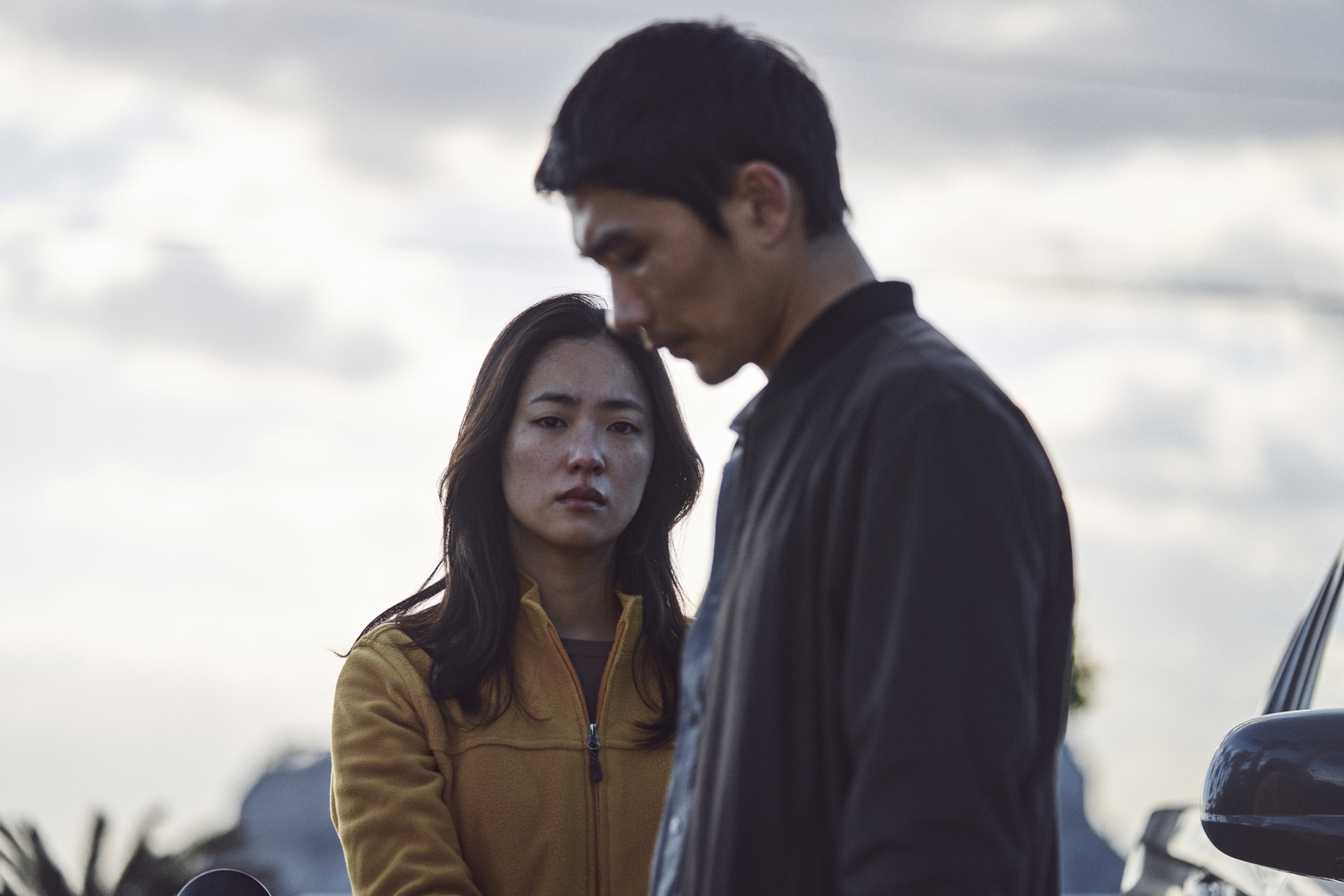In ‘Night in Paradise,’ writer-director-producer Park Hoon-jung (‘The Tiger: An Old Hunter’s Tale’) uses violence to give structure to his poignant human drama. Although the film unfolds like a typical South Korean gangster movie, it is in the quieter moments filled with interactions between its two protagonists, Tae-Gu (Tae-goo Eom) and Jae-Yeon (Yeo-bin Jeon), that the film finds its heart and truly shines. Both have their own death sentences hanging over them. Hers is natural; his isn’t.
The moment they acknowledge that about each other, an unconventional romance starts to take shape. We, the audience members, know, even during its inception, that it will never reach any satisfying conclusion, but we try to derive comfort from those tragic elements. The film’s ending is explosive, filled with blood and gore. And yet, our hearts break as we realize that was how it was always supposed to end. Here is everything you need to know about the ending. SPOILERS AHEAD.
Night in Paradise Plot Synopsis
The story begins in Seoul. Tae-Gu is a high-ranking gangster in Yang’s (Park Ho-San) crew. Over the years, he has garnered a fierce reputation in the criminal underbelly of the South Korean capital that has gained him the respect of even the head of the rival Bukseong gang, Chairman Doh, who has asked him to come work for him. Loyal to a fault, Tae-Gu has declined.

Meanwhile, his sister Jae-Kyung has been diagnosed with a terminal disease of her own and has only limited time left. Tae-Gu mentally prepares himself to eventually lose his sister and take on the responsibility of raising his niece, Ji-Eun. However, Jae-Kyung and Ji-Eun are killed in a vehicular crash, and Tae-Gu loses the only normal aspects of his life.
At this point, the movie could have turned into a revenge fantasy, but ‘Night in Paradise’ is aiming for something loftier. After Yang tells Tae-Gu that Doh ordered the hit because Tae-Gu refused his offer, Tae-Gu visits the Bukseong stronghold and stabs Doh, despite the older man adamantly telling the protagonist that he was not involved in his family’s death. Yang subsequently sends Tae-Gu to Jeju Island to spend a week at the home of one of Yang’s old acquaintances before he can flee to Russia.

The story then shifts back and forth between Jeju and Seoul. Tae-Gu meets Jae-Yeon, the terminally ill niece of his host, the arms dealer Kuto (Keone Young). Despite the initial hostility, Tae-Gu and Jae-Yeon grow close as neither has much time left in the world. Meanwhile, Director Ma (Seung-Won Cha), Doh’s second-in-command, successfully evades the henchmen that Yang sends to kill him and comes after the latter with the full might of the Bukseong.
Night in Paradise Ending: Is Jae-Yeon Dead?
Yes, Jae-Yeon is dead. In the film’s climactic scene, she visits the eatery where both gangs are having lunch together and massacres them all, including Yang, Director Ma, and Police Captain Park. Afterward, she goes to the beach. As the police sirens close in, she puts the gun to her temple, and the scene cuts to black. The credits start rolling only after the audience members hear a gunshot. This scene is supposed to bring to our mind an earlier scene that takes place not long after Tae-Gu moves to Jeju. After practicing with some empty bottles, Jae-Yeon turns the gun on herself, making Tae-Gu panic. But he soon learns that the gun is empty at that point.

Her initial antagonism toward Tae-Gu stems from her general disdain for the criminal lifestyle. She lost her family to gang violence. Kuto’s Russian enemies killed her parents and sister. And even though Kuto left that life not long after and moved to Jeju with her, she grew up resenting both Kuto and what he represented. After Kuto’s death, she relates all this to Tae-Gu, making him reflect on his own relationship with his sister and niece. He likely wonders whether Ji-Eun would have resented him if she had survived the crash.
The two protagonists’ shared wistfulness for more time creates the foundation of their unique relationship. It gets reinforced when they become the only remaining person in each other’s lives. Again, the film unfolds in an unorthodox manner when it doesn’t depict the characters seeking physical connection. Instead, ‘Night in Paradise’ moves on at such a rapid speed that Tae-Gu gets killed in the very next sequence after he and Jae-Yeon admit they care and worry about each other.
Who Orders the Hit on Tae-Gu’s Sister and Niece?
Yang orders the deaths of Jae-Kyung and Ji-Eun. As Director Ma reveals to Tae-Gu, Yang’s henchmen have been dying or switching sides. When he learns that Tae-Gu has also received an offer from Doh, he devises a dangerous and ambitious plan. He thinks if Tae-Gu kills Doh and some of his other henchmen kill Director Ma, he will be able to eradicate Bukseong from Seoul’s underworld.
Unfortunately, nothing goes according to his plans. Both Doh and Director Ma survive, and the latter comes after him seeking vengeance. In utter desperation, Yang reaches out to Captain Park and begs him to negotiate a truce. Park subsequently convinces Director Ma to satiate his need for revenge by killing Tae-Gu, the man who stabbed Doh and not the one who persuaded him to do it.

Yang is a sniveling coward who has no problem sacrificing his most loyal soldiers for his own survival. When Tae-Gu finally realizes this, he is already nearing death. The film again turns the conventional revenge trope on its head as it denies its hero that moment of gratification. However, that doesn’t mean that the movie isn’t kind to him. As his last act, he ensures Jae-Yeon’s safety. Director Ma, unlike Yang, is a man of his word. As he has promised Tae-Gu, he lets Jae-Yeon live.
Ultimately, the film diminishes even this apparent act of honor. Director Ma spares her life, knowing that she will die soon anyway, catastrophically miscalculating the situation. Tae-Gu’s death transforms Jae-Yeon into a classical heroine of a revenge saga. Since her diagnosis, she has lived her life with justifiable hubris about death. That gets prominently enunciated as she kills all those gangsters in the eatery. No one gets away without facing repercussions for their actions. The film strips away all the glamour associated with the life of crime, leaving only the inevitable reality of death.
Read More: Night in Paradise: Is It a True Story? Where Was It Filmed?


You must be logged in to post a comment.